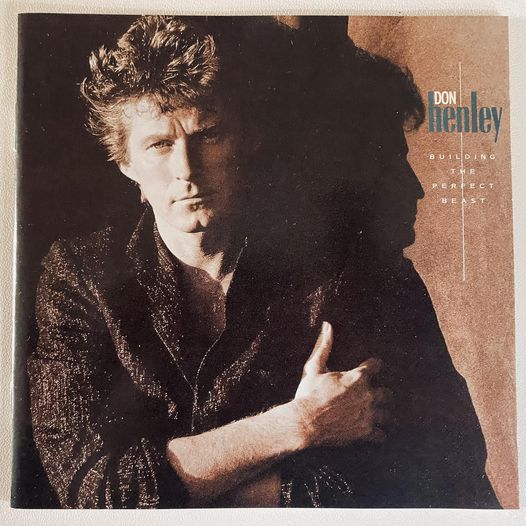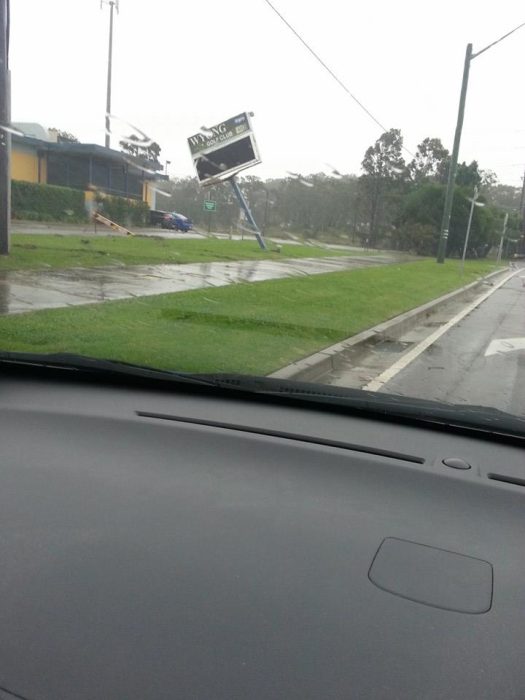I get earworms all the time. A song will jump into my mind’s eye often at an inconvenient time, and it refuses to leave. Sometimes the right song, with the right lyrics, will appear just when you need it to.
In April 2015, a storm cell ripped through Newcastle, The lower Hunter Valley and the Central Coast of NSW, with a force the equivalent of a category two cyclone. It ripped off roofs, felled trees and flooded many different parts of the area. The power went out for about 3 days, internet access and mobile phone access was down. Schools and workplaces were closed, vehicles in car dealerships were under water. I still had to turn up to work, in order to be marked as safe and present, then to be sent home until further notice, as my then-workplace had no power or running water. Driving carefully back through the debris and tree limbs, at a time where the Pacific Highway shouldn’t have been as deserted as it was, an old song dropped into my head:
“Nobody on the road,
Nobody on the beach,
I feel it in the air,
Summer’s out of reach…”
Every time I hear “The Boys of Summer” now, I think of that moment, and the photo I took from my car as I drove home. If ever there was a time to reflect on that lyric, and the passing of the heat of summer and moving into the cold and wet of winter, this was it. I doubt this is what Henley had in mind when he wrote the lyric in the first place, but it was right for that moment.
And to think that this song, in different circumstances, wouldn’t have existed at all. Mike Campbell, of Tom Petty’s backing band The Heartbreakers, had an idea he was working on, using new drum machines and synthesisers, that he wanted to bring to the band’s next album. Petty wasn’t that enthused by Mike’s backing track that he whipped up in his home studio, saying it wouldn’t fit on the album they were making (which was the “Southern Accents” LP). The record’s producer Jimmy Iovine heard something he liked in it, and suggested he play it for drummer and vocalist for The Eagles, Don Henley, instead.
Henley liked what he heard, wrote a lyric and then attempted to record it. He ended up changing the key as the original recording didn’t quite suit his vocal range. He included it on his next album Building the Perfect Beast (pictured) and it was a top 5 hit in both Australia and the USA.
This song was inescapable in its prime, on radio and music television. The one lyric that has always stuck out at me was the line about “a Deadhead sticker on a Cadillac”. For years I had no idea what he was talking about, only that a Cadillac was a car – I knew that much. However, what is this “Deadhead” thing?
The “Deadhead” is the logo of the American band The Grateful Dead, who represent everything counter-cultural and anti-corporate. Ironically, the band have built their own industry around themselves without the help of corporate interests (save for the major record labels they were signed to). They’ve sold millions of dollars of merchandise and have been a massive concert draw for decades without any of their records ever topping a chart anywhere. The Cadillac was pretty much the car of choice for bankers, stockbrokers, CEOs and hedge fund managers. Having a Deadhead sticker on a car like that seemed antithetical – a clash of polar opposite ideologies.
When US punk band The Ataris recorded a cover of the song in 2003, they changed the “Deadhead sticker” to a “Black Flag sticker”, referencing the staunchly independent hardcore punk band fronted by Henry Rollins for many years. It was more appropriate to their fan base, and Henley was not fond of the change. In 2016 he was asked in an interview in the Montreal Gazette if he approved of the lyric change, saying
“No, not really … And if you noticed, we haven’t heard much from the Ataris since then.”
Touché, Mr Henley.
David Kowalski, a writer and podcaster, is celebrating songs that turn 40 this year.


